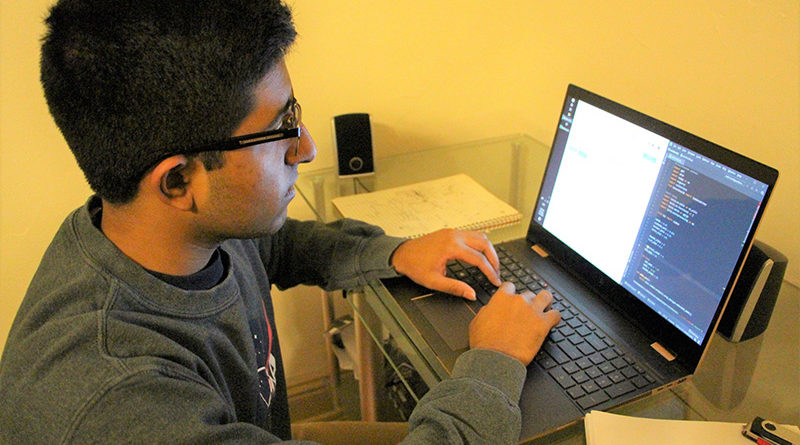Skilled Programmer Gets Lessons in Entrepreneurship

Sahitya Senapathy is not your average high school senior. He’s got programming chops and an entrepreneurial spirit, and he wants to change how we learn.
The 17-year-old Senapathy started an edtech company in his spare time as a student at St. Marks School of Texas.
His AI-driven study platform, dubbed Studiously, aims to promote understanding over memorization by guiding students through targeted study sessions that cater to an individual student’s needs. Studiously can even analyze photos of difficult homework and automatically generate additional problems that help students solidify their understanding. As Senapathy puts it, he’s “doing
for education what Google maps has done for driving.”
“When I first started, I was really focused on how technology could better learning.” -Sahitya Senapathy
Senapathy was inspired by problems he encountered as he navigated the perilous world of high school education. During his junior year, he noticed a shift in the curriculum that made high levels of deep understanding more important than they had been in prior years. The days of being able to score straight-A’s by pounding facts into your head with flashcards began to fade. Though flashcard apps like Quizlet worked fine for learning the state capitals and cell organelles, higher-level subjects that required synthesis and critical thinking were not well suited to the classic flashcard format.
Taking matters into his own hands, Senapathy began researching the psychology of learning and brainstorming alternatives to tried-and-true studying techniques.
As any inventor or entrepreneur will tell you, coming up with an idea is the easy part. All of the value (and all of the difficulty) lies in the execution. To turn his idea into a sale-able product, Senapathy had to teach himself business skills, learn the process of working with investors, and research how technology affects individuals. He already had impressive coding skills — he won a $5,000 grant from the U.S. Army for a mobile application he worked on in the sixth-grade — but AI was a new area for him, and he had to self-teach in that realm as well.
His hard work paid off in spades when, earlier this year, Senapathy took home first prize in the i.Invest National Youth Business Competition. Now seeking outside funding for the app, Senapathy has had to learn to see things from the perspective of investors.
“When I first started, I was really focused on how technology could better learning. But when it comes down to funding, entrepreneurs should be able to communicate the product in a way that anyone can understand regardless of how complex the technology is,” he said.
Senapathy hopes to have Studiously ready for a public release next year.
The platform is in its beta testing stage, where in an initial trial, 96% of students surveyed preferred Studiously over Quizlet.
Senapathy thinks that the benefits of Studiously could extend beyond the high school classroom and imagines a world where it is used in elementary schools, colleges, and corporate environments. He plans to attend college in the fall, and though he hasn’t decided on a school, he hopes to share the benefits of Studiously with his college classmates.










